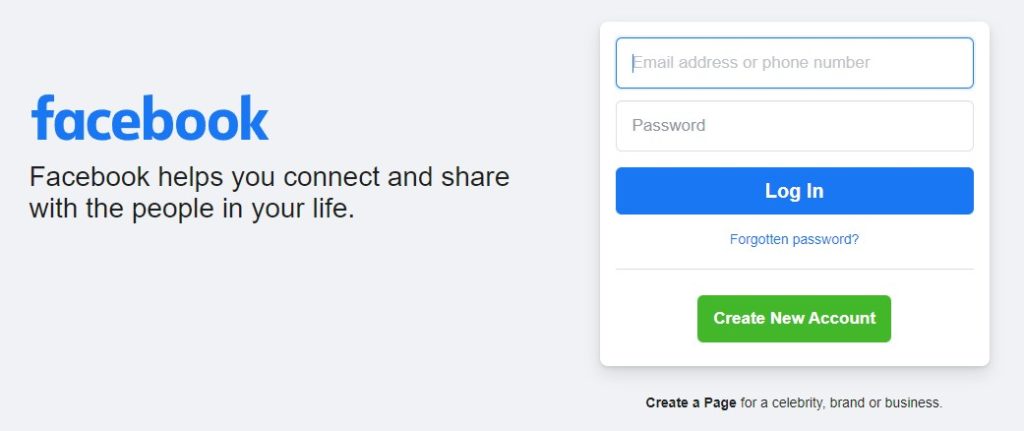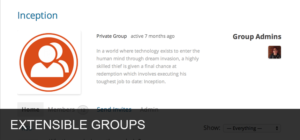How to Make a Social Network Website
A social network platform is a website or app where people can create profiles, connect with friends and family, share photos and videos, and discuss topics of interest. Popular social networking platforms include Facebook, Instagram, Twitter, and LinkedIn.
Each platform has its own unique features, but all offer a way for users to connect with others and share information. Creating a social network platform can be a great way to connect with people who share your interests, and it can also be a powerful marketing tool.

Making a social network platform is no easy task. It requires careful planning, execution, and of course, the right tools. Luckily, we’ve put together a curated list of resources to help you make your social network platform a reality.
Essential Elements of a Social Network Platform
When planning your social network platform, there are a few key elements to keep in mind.
- Niche: Niche social networks are those that cater to a specific audience or interest group. They can be a great way to connect with like-minded people, and they often have a more engaged and loyal user base. There are many different niches out there, so it’s important to do some research and find one that fits your business or personal brand. Some popular niches include health and fitness, parenting, pets, and travel.
- A user-friendly interface: The interface is the first thing users will see when they visit your site or app, so it’s important to make a good first impression. Keep the design simple and easy to navigate, with clear buttons and labels.
- Quality content: Once you’ve hooked users with a well-designed interface, it’s time to keep them coming back with quality content. This can include blog posts, articles, videos, or anything else that will interest and engage your users.
- Social features: What makes a social network platform different from a traditional website is the social features. These features allow users to connect with each other and share content. Some common social features include friend lists, private messaging, and comments.
- A robust platform: In order to support all of the above elements, you’ll need a robust platform that can handle a large amount of traffic and data. Look for a platform that offers high-performance hosting, scalability, and security.
Steps to Get Started
If you’re interested in creating your own social network platform, there are a few things you’ll need to do.
Identify your network’s topic
In order to create a social network platform, you first need to identify the topic of your network. This can be anything from sports to fashion to food.
The key to a successful social network platform is finding a niche that isn’t already saturated. There are many different niches out there, so it’s important to do some research and find one that fits your business or personal brand. Some popular niches include health and fitness, parenting, pets, and travel.
You can go broad by identifying your network as video, short message, or image-based. However, these broad topics are likely to already have established platforms such as YouTube, Snapchat, and Instagram.
Think about what makes your network unique and focus on that. For example, if you’re interested in fashion, you could create a social network platform for plus-size women’s or men’s fashion.
Think of features and functions of your network
The next step is to define the features and functions of your network. This includes everything from the social features to the content you’ll be offering.
Some common social features include friend lists, private messaging, and comments. As for content, you’ll need to decide what type of content you’ll be offering and how you’ll be delivering it. Will you have a blog? Videos? Articles? Podcasts?
It’s also important to think about how users will interact with the content on your site. Will they be able to like, share, or comment on it?
Choose related technology
Now that you have an idea of the features and functions of your social network platform, it’s time to start thinking about the technology you’ll need to support it.
If you’re not a developer, you may want to consider using a social network platform provider such as Ning, SocialEngine, or BuddyPress. These providers offer robust platforms that can be customized to fit your specific needs.
If you are a developer or have some coding skills, you can create your own social network platform from scratch using a framework such as Laravel or Ruby on Rails.
Data charts and graphs
No matter which route you choose, you’ll need to be able to track the data on your site. This includes everything from the number of users to the type of content they’re interacting with.
There are a few different ways to track this data. The most common is Google Analytics. However, there are also social media-specific analytics platforms such as Hootsuite Insights and Sprout Social.
Your users need to access data like popular stories in the last 24h, most viewed stories in the last 7 days, Stories with the most comments, and so on.
Personal page with status updates
One of the key features of a successful social media platform is the ability for users to create and maintain a personal page. This page serves as a hub for activity and interaction and allows users to share updates, photos, and thoughts with their friends.
Personal pages are an essential part of any social network, as they provide a space for users to connect with each other and build relationships. Without personal pages, a social media platform would be little more than a collection of isolated individuals.
Consequently, it is important that your platform provides users with the ability to create and customize their own personal pages. Only then will your platform be able to achieve its full potential as a social networking tool.
A robust platform
In order to support all of the above elements, you’ll need a robust platform that can handle a large amount of traffic and data. Look for a platform that offers high-performance hosting, scalability, and security.
Some popular platforms include Amazon Web Services (AWS), Google Cloud Platform (GCP), and Microsoft Azure.
These platforms offer a variety of services that can be used to build a social network platform.
WoWonder
https://codecanyon.net/item/wowonder-the-ultimate-php-social-network-platform/13785302
WoWonder is a PHP Social Network Script that is the ideal starting point for your own social network website. It's quick, safe, and continuously updated with new features. The only social network on the market that supports native mobile apps fully WoWonder is also the only one to properly support HTML5.

WoWonder's advanced API system makes it possible to connect your WoWonder-powered site to your mobile app, ensuring a seamless user experience.
WoWonder is a powerful and flexible social network platform that comes with six different website modes. With just one click, you can turn your website into any of these popular social networks: Facebook, Instagram, LinkedIn, Twitter, AskFM, or Patreon. WoWonder is packed with features and options that give you complete control over the look and feel of your site.
You can customize everything from the colors and fonts to the layout and design. Wo Wonder also offers a wide range of plugins and extensions that let you add even more functionality to your site. Whether you're looking to build a simple social network for your friends and family or a comprehensive online community for your business or organization, WoWonder is a suitable source code.
WordPress
Plugins

If you want to turn your WordPress into a robust and modern social network, you can use the BuddyPress plugin. BuddyPress is a suite of components that are common to a typical social network and allows for great add-on features through WordPress’s extensive plugin system.
The plugin is focused on ease of integration, ease of use, and extensibility. It is deliberately powerful yet unbelievably simple social network software, built by contributors to WordPress.
BuddyPress is also compatible with a wide range of plugins, making it even more versatile and customizable. It comes with an API that helps make BuddyPress content pages look great on just about any WordPress theme, no matter what type of developer you are!